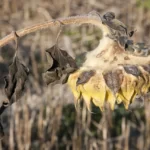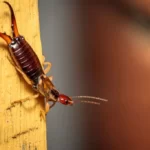Deer, those graceful creatures of the forest, are often admired for their beauty and gentle demeanor. Yet, for gardeners and farmers, deer can present challenges when it comes to protecting crops. One question that frequently arises in this context is whether deer have a penchant for cucumbers. In this article, we delve into the dietary preferences of deer and the allure of cucumbers to these herbivorous animals. Let’s explore the relationship between deer and cucumbers, shedding light on whether these garden delights are on the menu for our antlered neighbors.
Deer Dietary Habits
To grasp whether deer might fancy cucumbers, it’s essential to understand their general dietary habits. Deer are, by nature, herbivores. They predominantly feed on vegetation, including leaves, twigs, shoots, grasses, and fruits. Their diet varies throughout the seasons, adapting to the availability of different plant species. Deer are particularly fond of tender shoots and young, succulent plants, which are often more accessible and nutritious.
Deer play an important ecological role as browsers, shaping the composition of plant communities. However, this foraging behavior can sometimes bring them into contact with human crops, leading to occasional garden or farm-related challenges.
Cucumber Overview
Cucumbers, unlike the leaves and grasses that constitute the bulk of a deer’s diet, belong to the gourd family and are cultivated by humans for culinary purposes. These green, cylindrical vegetables are known for their crisp texture, refreshing taste, and versatility in salads, sandwiches, and pickles.
Cucumbers have been a staple in human diets for centuries, and their cultivation is widespread in gardens and farms. These plants produce sprawling vines with distinctive leaves and produce long, green fruits that are typically harvested at their peak of freshness.
As we explore the question of whether deer eat cucumbers, it’s important to recognize that cucumbers, while appealing to humans, may or may not hold the same allure for deer. To uncover the truth, we’ll delve further into deer-cucumber interactions in the upcoming sections.
- Burpless Garden Sweet Cucumber is a slicing cucumber that produces long, slender fruits with a thin, tender skin and sweet, juicy flesh. They grow to about 8-10 inches long and are a popular choice for fresh eating, salads, and pickling. The name “burpless” refers to the fact that these cucumbers are less likely to cause indigestion or gas than other varieties.
- Planting instructions: Start indoors 6-8 weeks before the last frost or direct seed after all danger of frost has passed. Cucumber seeds prefer germinating in warm soil, around 70°F.
- Seed depth: 1/2″, Plant spacing within row: 12″, row spacing: 8′.
- Pro tip: Keep seeds constantly moist until germinated. Cucumbers can be trellised to save space.
- Plant in full-sun for optimal growth. Harvest in 55 days.
Do Deer Eat Cucumbers?
The million-dollar question is whether deer eat cucumbers. The answer is not a straightforward yes or no. Deer have been known to nibble on cucumbers occasionally, but it’s not a typical part of their diet. Cucumbers, being garden vegetables, might pique their interest when they encounter them, especially if other food sources are scarce.
Deer encounters with cucumbers often occur in rural areas where gardens and farmlands intersect with deer habitats. These occasional nibbles can be frustrating for gardeners and farmers, but they don’t necessarily indicate that cucumbers are a staple in a deer’s diet.
Factors Influencing Deer-Cucumber Interactions
Several factors can influence whether deer are more likely to eat cucumbers:
- Food Scarcity: When natural food sources become limited, deer may explore new options, including garden crops like cucumbers.
- Environmental Conditions: Severe weather conditions, such as droughts or floods, can affect the availability of wild plants, potentially driving deer to seek alternative food sources.
- Deer Population Density: Areas with high deer populations may experience more frequent deer-cucumber interactions as competition for food resources increases.
- Taste Preferences: Individual deer may have varying taste preferences, and some may show more interest in cucumbers than others.
Protecting Cucumbers from Deer Damage
For gardeners and farmers who want to safeguard their cucumber crops from deer damage, several strategies can be effective:
- Fencing: Installing sturdy fencing around the garden or cucumber plants can be highly effective in keeping deer out.
- Repellents: Using deer repellents, such as sprays or scent deterrents, can discourage deer from approaching cucumber plants.
- Garden Placement: Consider planting cucumbers closer to your home or in areas less frequented by deer, if possible.
- Alternative Food Sources: To divert deer away from cucumbers, provide alternative food sources such as deer-friendly plants or food plots in designated areas.
- Tough durable deer netting; Protects landscape and crops from deer and other animals
- Economical, lightweight deer protection; Black UV-resistant deer netting
- Reusable mesh deer fence; Stops deer and other animals from eating shrubs, berries, and vegetables
- Easy to use roll of deer fence netting; Attaches easily to posts and trees
- Do it yourself deer netting for protecting trees, shrubs, orchards and crops
Conclusion
In conclusion, the relationship between deer and cucumbers is not a straightforward one. While deer are primarily herbivores, cucumbers are not a staple in their diet. Deer are more likely to nibble on cucumbers when driven by factors like food scarcity, environmental conditions, or individual taste preferences.
Gardeners and farmers who wish to protect their cucumber crops from deer can implement various strategies, such as fencing and repellents, to deter these animals. Understanding the complex interplay between deer behavior and cucumber cultivation can help strike a balance between coexisting with nature and safeguarding valuable crops. So, the next time you spot a nibbled cucumber in your garden, remember that deer might have made a brief visit to explore this garden delight, but it’s not their primary food source.






